Listen to This Article:
Processed foods fill grocery store shelves around the world, tempting consumers with convenience and promising flavorful meals in minutes.
Admittedly, there’s a lot to like about processed food. It’s often affordable and easy to prepare, and it can save you a lot of time in the kitchen. But there are many dangers associated with eating processed foods as well.
Learn more about the negative impacts processed food can have on your body and the environment.
What Is Processed Food?
Many of us have at least a vague idea of what processed food is. We know it often comes in boxes, bags, or cans and may have long lists of ingredients, but beyond that, we may not understand what makes food “processed.”
Food manufacturers aren’t exactly forthcoming about whether or not their products have been processed, so it’s not always easy to tell when you’re eating processed food.
According to the United States Department of Agriculture, “A processed food item … is a covered commodity that has undergone specific processing resulting in a change in the character of the covered commodity, or that has been combined with at least one other covered commodity or other substantive food component.”
Processing can include cooking, preserving/curing, restructuring, or smoking. By this definition, foods that have been modified in preparation for consumer purchase (such as a pineapple that has been cut) or enhanced to improve flavor (such as a chicken breast that has been injected with a sodium solution) are not considered processed.
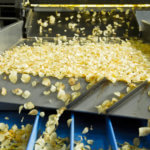
The NOVA Food Classification System
Most scholars and experts agree that this definition is too vague, which is what led to the creation of the NOVA food classification system. This system, presented by the United Nations, proposes four sub-categories of processed foods: unprocessed and minimally processed foods, processed culinary ingredients, processed foods, and ultra-processed foods.
Unprocessed and Minimally Processed Foods
Natural foods made edible or usable through processes such as cleaning, grinding, freezing, and packaging. Examples include apples, pitted grapes, and frozen vegetables.
Processed Culinary Ingredients
Naturally derived ingredients (foods not eaten on their own) processed through drying, refining, and pressing. Examples include sugar, vegetable oil, and flour.
Processed Foods
Foods enhanced through the use of added ingredients (such as sugar, salt, or cooking oil) and processed through cooking and preservation. Examples include canned vegetables, mass-produced bread, and pasteurized cheese.
Ultra-processed Foods
Foods created through the industrial modification of various ingredients. These foods often contain additives such as emulsifiers, added coloring and/or flavoring, and artificial sweeteners to enhance their flavor. These methods make them “hyper palatable,” or irresistible to our taste buds, and also keeps them long-lasting. Examples include breakfast cereal, chips, and soft drinks.
History of Food Processing
The practice of processing food may date back about two million years to when humans first started cooking their food. Since then, food shortages, agricultural advances, and evolutionary change in humans have led to the development of new techniques used to process food.
Today, food is processed for a number of reasons, from keeping it fresh to making it tastier, but we still use some ancient methods of food processing such as drying, fermenting, and salt-curing.
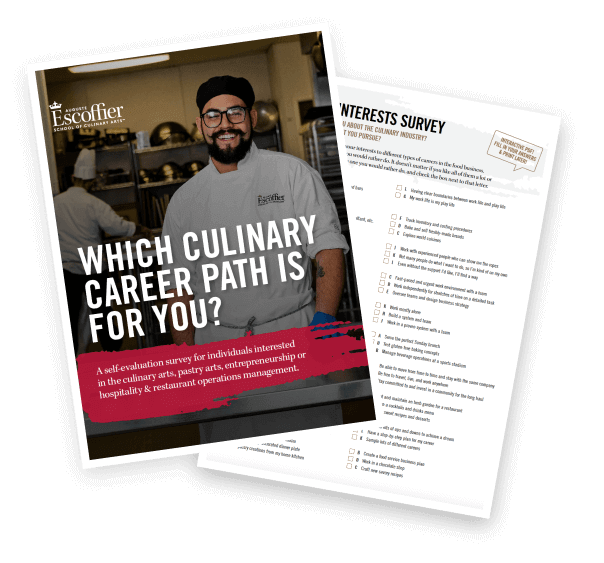
Take the Culinary Career Survey
We’ve compiled a checklist of all of the essential questions into one handy tool: career options, culinary interest surveys, educational opportunities, and more.
How Processed Food Affects Your Body
Nutritionists, dietitians, and medical professionals have been sounding the alarm about processed foods for decades.
These experts recommend limiting intake of processed foods that have been significantly altered through processing and added ingredients. Highly processed foods lose most of the nutrients that may have been present in the ingredients before going through several industrialized processes.
Ultra-processed foods not only lack essential vitamins and nutrients, but they can also pose health risks. They have been linked with increased obesity, increased cancer risk, and elevated risk of chronic disease. For example, a serving of Honey Bunches of Oats, a breakfast cereal containing oats, has only two grams each of dietary fiber and protein, plus an added six grams of sugar. A serving of oatmeal, on the other hand, contains four grams of fiber, five grams of protein, and only as much sugar as you may choose to sweeten it with.
But you don’t have to cut out processed food altogether to be healthy. Incorporating more whole foods and plants into your diet gradually is a good place to start.
A plant-based diet—specifically one that puts unprocessed or minimally processed fruits, vegetables, and grains front and center—can provide your body with the energy-dense and nutritious food it needs to function, and it’s not as limiting as you might think. Private Chef and Auguste Escoffier School of Culinary Arts graduate Shane Witter Hicks explains that you don’t have to feel stuck when following a plant-based diet:
“One of the ideas that I champion with vegetarian and plant-based cooking is that you should never be stuck in a rut. So many people think that when shifting to a vegetarian diet you’re confining yourself within these culinary walls. And it feels kind of restrictive to them. But I think by adopting a more plant-centric diet, you actually expand and become more creative. You’re going to be forced to investigate ingredients that you never thought you’d cook with. As a result, it’s actually an expansion of your culinary capacities to cook plant-based dishes.”
Shane Witters Hicks, Escoffier Graduate, Private Chef & Plant-Based Enthusiast
Of course, vegetarians can eat highly processed foods too. But what Chef Shane is referring to is a whole-food, plant-based diet that leans on food sources like vegetables, fruits, nuts, whole grains, and legumes for nutrients and avoids processed foods filled with additives and chemicals—animal-derived or otherwise.
If learning to cook with whole foods and plants is something you’re passionate about, there may be a place for you in culinary school. Escoffier offers both in-person and online Plant-Based Culinary Arts programs.
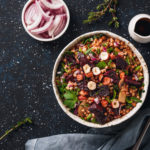
The Environmental Toll of Processed Foods
Conservationists and environmentalists also raise concerns about the environmental impact of commercial food processing.
Food processing is responsible for high greenhouse gas emissions. In fact, according to a 2021 article by Nature Food, an estimated one-third of the world’s total greenhouse gas emissions are created by food production. As much as 75% of this can be traced to food processing and transportation, waste disposal, and commercial agricultural practices.
Factories can produce processed foods much more efficiently than farmers can grow fruits and vegetables, and this means that processed food is often more affordable for consumers than fresh whole foods. Processed food is also cheaper to produce than fresh food because commodity crops that are used in processed foods are often subsidized, whereas smaller farms putting out fruits and vegetables to be sold unprocessed or minimally processed must be privately funded.
So although processed food is cheap, the true cost comes in the form of emissions and the waste produced. Edible food is discarded if it isn’t the right shape, size, or color. Food is packaged in plastic that doesn’t break down. And agricultural byproducts are destroyed.
Today, more and more people are eating diets rich in plants and other whole foods for their health and their planet. Some culinarians, like Escoffier Chef Instructor Stephanie Michalak, have devoted themselves to this cause as well. Chef Stephanie explains that she made the choice to switch to a vegan diet built on whole foods to do her part in protecting the planet.
“[Sustainability] was a big part of why I was vegan. It was about understanding where our food comes from, understanding the vibrancy of our food when it is in season, and also understanding that food isn’t always sustainable. We don’t always talk about it that way, because we’re in a culture where food is accessible all the time for most of us. But that is not the case for everyone.”
Stephanie Michalak, Escoffier Lead Chef Instructor for Plant-Based Culinary Arts Programs
Escoffier students take a six-week Farm To Table® Experience course during which they learn more about food production and explore ways to make the most of fresh, local ingredients. Students in the ground campuses actually have the opportunity to work directly with the farmers.
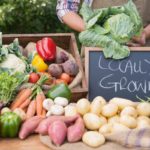
What Can You Do?
Some are not willing to give up their favorite foods or commit completely to a plant-based diet centered around fresh unprocessed foods, and that’s perfectly fine. Whatever your circumstances, reducing your consumption of processed foods could have a positive impact on your health and the environment.
If you’re interested in turning your passion for healthy, whole foods into a career, consider exploring Escoffier’s Holistic Nutrition and Wellness programs as well as our Plant-Based Culinary Arts offerings.
To learn more about sustainability in the culinary arts, check out these articles:

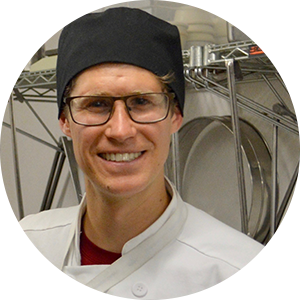 “One of the ideas that I champion with vegetarian and plant-based cooking is that you should never be stuck in a rut. So many people think that when shifting to a vegetarian diet you’re confining yourself within these culinary walls. And it feels kind of restrictive to them. But I think by adopting a more plant-centric diet, you actually expand and become more creative. You’re going to be forced to investigate ingredients that you never thought you’d cook with. As a result, it’s actually an expansion of your culinary capacities to cook plant-based dishes.”
“One of the ideas that I champion with vegetarian and plant-based cooking is that you should never be stuck in a rut. So many people think that when shifting to a vegetarian diet you’re confining yourself within these culinary walls. And it feels kind of restrictive to them. But I think by adopting a more plant-centric diet, you actually expand and become more creative. You’re going to be forced to investigate ingredients that you never thought you’d cook with. As a result, it’s actually an expansion of your culinary capacities to cook plant-based dishes.”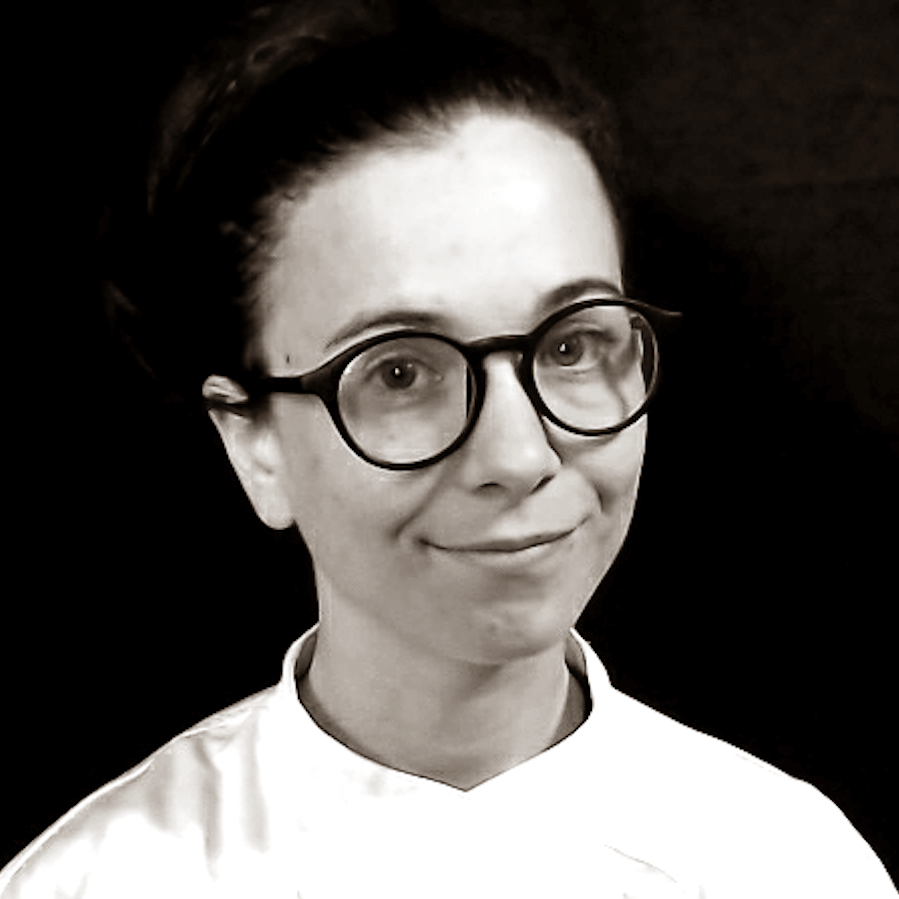 “[Sustainability] was a big part of why I was vegan. It was about understanding where our food comes from, understanding the vibrancy of our food when it is in season, and also understanding that food isn’t always sustainable. We don’t always talk about it that way, because we’re in a culture where food is accessible all the time for most of us. But that is not the case for everyone.”
“[Sustainability] was a big part of why I was vegan. It was about understanding where our food comes from, understanding the vibrancy of our food when it is in season, and also understanding that food isn’t always sustainable. We don’t always talk about it that way, because we’re in a culture where food is accessible all the time for most of us. But that is not the case for everyone.”